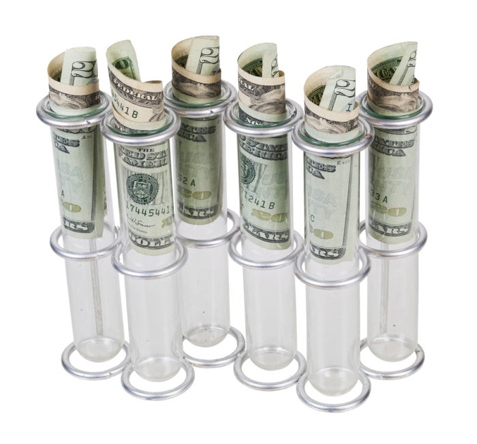The largest deal announced in a very sluggish week for healthcare announcements was McKesson Corp.‘s (NYSE: MCK) $735 million acquisition of RxCrossroads from CVS Health Corp. (NYSE: CVS).
RxCrossroads provides a range of specialty distribution, pharmacy and patient support to biopharmaceutical manufacturers. CVS acquired it in 2015 as part of its $12.7 billion deal for Omnicare Inc., which specialized in managing pharmaceutical care in long-term care and assisted living facilities. Omnicare paid $235 million for RxCrossroads in 2005, when it reported annualized revenue of $46 million.
For McKesson, RxCrossroads will help it to capitalize on what the coming boom in the specialty pharma market that the company believes is on the horizon. In a post on its corporate website, McKesson cites a factoid published in Formulary in June 2013, stating that, somewhere between 2018 and 2020, “50% of all drugs sold in the United States are expected to be specialty pharmaceuticals, compared with 30% today.”
Of course, this deal comes on November 6, 2017, just 12 days after The Wall Street Journal announced that CVS was in talks to buy managed care giant Aetna Inc. (NYSE: AET) for more than $66 billion. At the time the news was published, speculation on the rationale for the acquisition focused on Amazon‘s (NASDAQ: AMZN) rumored entry into the pharmacy benefits management (PBM) business.
If that transaction does occur, CVS would gain millions of new members for its own PBM business, as well as more foot traffic through the front of its retail stores. On the third quarter earnings call, CVS CEO Larry Merlo discussed the five-year agreement with Anthem (NYSE: ANTM) the company announced earlier this year.
Beginning in 2020, CVS will support Anthem’s new PBM, IngenioRx, by managing claims processing and prescription fulfillment through its mail-order and specialty pharmacies. Anthem launched IngenioRx after terminating its long-standing PBM relationship with Express Scripts (NYSE: ESRX) earlier this year.
Merlo said CVS’ specialty pharma business posted 10.6% revenue growth in the third quarter, which was lower than in previous years. The sector is seeing lower levels of inflation on specialty drugs, he noted, and there’s been an increase in generic dispensing within specialty. Also, lower-priced therapies are taking hold, and fewer hepatitis C scripts are being written. (Hep C drugs from Gilead Sciences (NASDAQ: GILD) hit the market in 2013 at $84,000 for a full-scale treatment.)
McKesson is betting that the biopharmaceutical industry, which has boomed from acquisitions and licensing deals in recent years, is about to see a plethora of new therapies make it through the FDA pipeline and hit pharmacy’s shelves with high price tags. For CVS, there’s a bigger prize out there, and shedding non-core businesses makes more sense.

